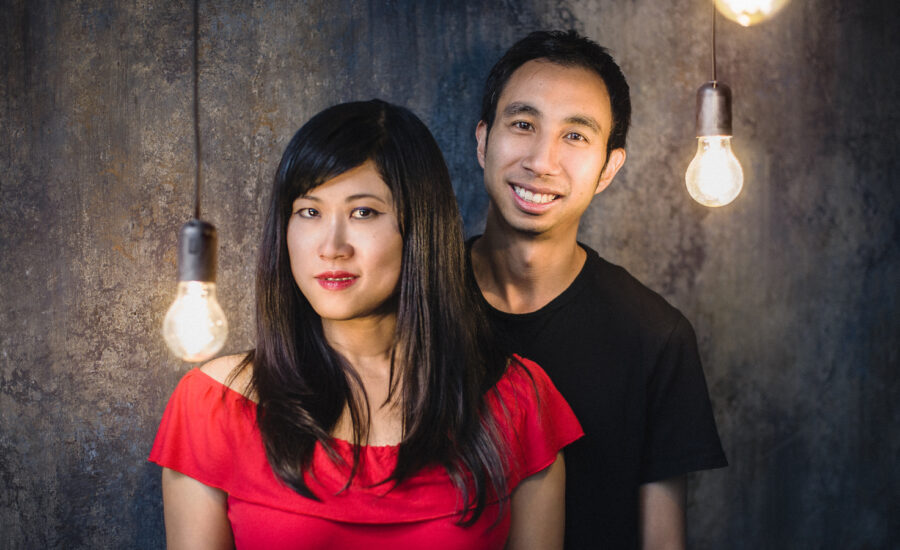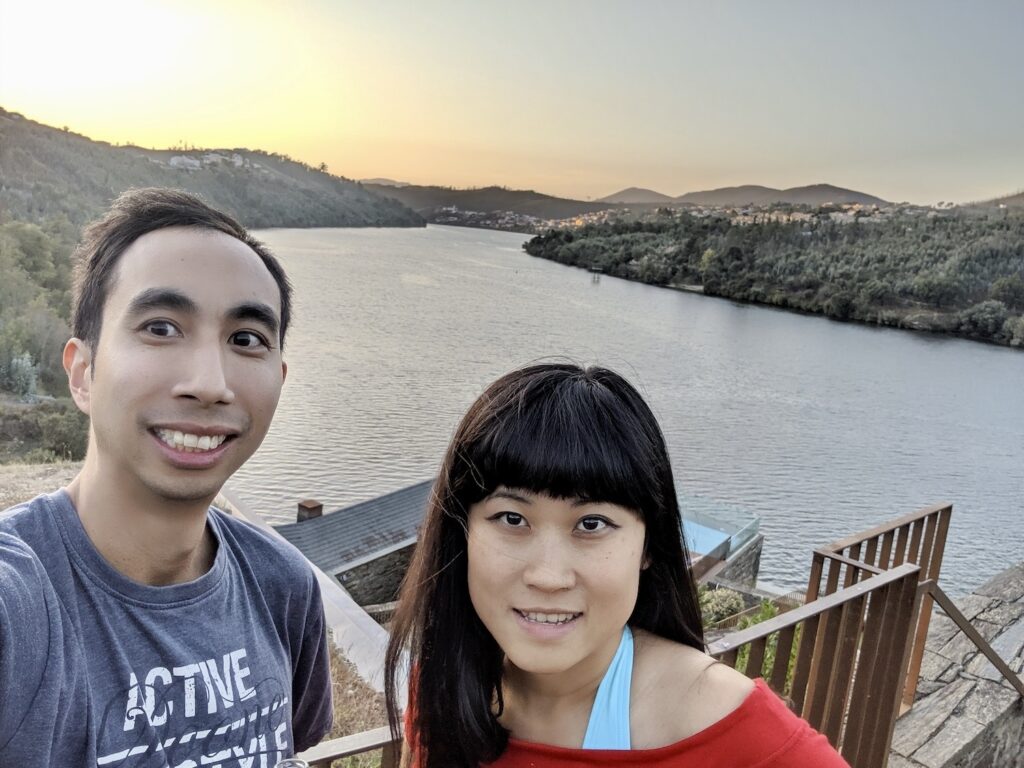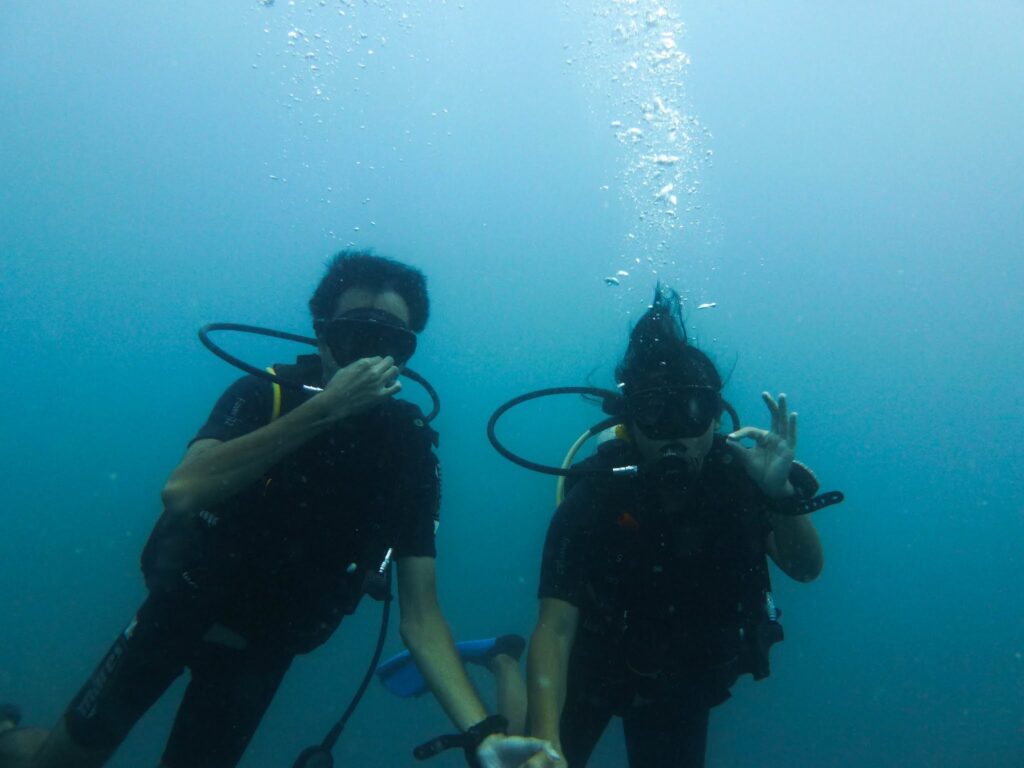Kristy Shen on living the FIRE life and using money to “buy back time”
The Millennial Revolution blogger chose a life of adventure over mortgage debt. Here’s how she retired in her 30s, and how she spends time and money now.
Advertisement
The Millennial Revolution blogger chose a life of adventure over mortgage debt. Here’s how she retired in her 30s, and how she spends time and money now.

In their early 30s, Kristy Shen and Bryce Leung quit their high-paying jobs in software engineering to travel the world. The Toronto couple had $1 million in savings, but instead of taking the conventional route of home ownership, they packed their suitcases. Shen and Leung started sharing their adventures and investing approach on their blog, Millennial Revolution. In 2019, they published Quit Like a Millionaire: No Gimmicks, Luck, or Trust Fund Required (TarcherPerigee), a guide to achieving a FIRE—Financial Independence, Retire Early—lifestyle. We invited Shen to share her finance heroes, the best money advice she’s ever received, and much more.
Warren Buffett, because he’s the greatest investor of all time and he advocates for index funds, which we use for our passive investing strategy. By winning a 10-year bet against a hedge fund investor, he proved that passive index investing wins over the long run compared to stock picking.
Aside from him, Mr. Money Mustache and JL Collins, author of The Simple Path to Wealth, have both been huge influences in introducing Bryce and me to the FIRE movement. Mr. Money Mustache taught us the 4% rule to calculate out how much we need to retire early (annual expense x 25), and JL Collins taught us that index funds are what we need to build a diversified portfolio.
Travelling with friends, climbing mountains and writing. Since retiring, Bryce and I have been to 50 countries, and we’re currently travelling around Australia and New Zealand. We’re also writing our next book, a follow-up to Quit Like a Millionaire.

Travelling with friends, climbing mountains and writing 🙂. Since we are retired, we’re basically living the life we always wanted and have complete control over our time.
Being handed a can of Coke from my dad after arriving in Canada for the first time. I was eight years old. Coke was a rare luxury in China at the time, so when I first drank it, I was so excited I had a massive nosebleed. I even kept the empty can and used it as a toothbrush holder. That’s when I first realized that Canada was a land of plenty, and you could buy luxuries like this here whenever you wanted.
A poutine. I was in grade seven, and I finally earned my own money–and kept it without giving it to my parents—from a summer job, working at my friend’s family restaurant. It tasted like freedom.
When I was eight years old, I delivered newspapers in Waterloo. I gave my tiny paycheque to my parents, who used it to buy cleaning supplies for our apartment. When they drove to Toronto to buy groceries from Chinatown, it was my job to clean the apartment.
Money is simply a tool and not what you use to feed your ego. Once you have enough, you can use this tool to buy your time back. We discovered this in our late 20s and were able to use our money to retire in our early 30s. Since then, our life has been filled with happiness, friends and travel. And buying back our time has also enabled us to help family in times of medical emergencies. That’s the best use of money—to buy back time so you can do what you love with the people you love.
Invest your money to build a passive income. To do that, you need to invest in index funds, which is a basket of stocks or bonds that tracks the performance of a particular stock market (e.g., the S&P 500 or the TSX). Because an index fund owns shares of every company that’s listed in that stock market, it’s diversified. When companies fail, they drop off the index and get replaced by new companies. This is a “cleansing mechanism” that ensures your investments can’t go to zero because that would require every company in the index to fail at the same time (at which point you have bigger things to worry about than your portfolio).
Another advantage of investing your money to build a passive income with index funds is that you get paid dividends (profit-sharing from the companies you own) and interest without having to sell any shares. This gives you a reliable income to live on in retirement without having to predict the stock market and know when to sell (which no one can do without a crystal ball). You just buy and hold and make passive income in your sleep.
We run a step-by-step investment workshop that guides people in how to build a portfolio like the one we used to retire, and it’s available for free on our blog.
Buy a house. We are inundated with pro-real estate propaganda in Canada, but the light-bulb moment came when I realized that the people around me who had done everything “right” and went into massive debt to own real estate at inflated prices were even more stressed and unhappy than before. Don’t take financial advice from people who are unhappy or are living lives that you don’t want.
Investing in index funds to build a passive income is essentially taking a large sum of money and converting it into a smaller amount of money every month for life, so the second option.
Time in the market is more important than timing the market. Trying to time the stock market based on the news is a losing game, and it keeps so many people on the investing sidelines.
That you have to be super smart to do it. Learning how to invest and grow your money doesn’t require any more math than what you’ve learned in high school. And if you got through that, you can learn how to invest. That’s why we wrote Quit Like a Millionaire—to show that you don’t need to have PhD-level intelligence to become a millionaire.
When I first started working, I got super into expensive handbags. I would go on vacation and visit outlet stores, emerging with multiple bags on each arm. This luxury purse addiction got so bad I wanted to rent a bigger place or buy a house just to store all my bags. This was before I realized that spending money on “stuff” doesn’t bring you happiness.
For me, value is usually tied to travel, since that’s something that’s extremely important to me. So, while I will spend as little as I can on transportation—I don’t own a car, and I use public transportation—I will spend money on experiences that I will look back on and reminisce over. For example, scuba diving in the Galapagos and Thailand.

Our first cruise to the Caribbean. It was the first trip I had taken with my then-boyfriend, now-husband, and I didn’t know how to swim at the time. That trip finally pushed me to learn and to fall in love with travel.
It’s toxic. Mortgage debt is especially bad since it’s seen as socially acceptable in Canada, but as we’ve seen during this recent period of rising interest rates, it can really destroy your finances if you don’t understand it.
Business class flights from Toronto to Singapore. It was the first time Bryce and I were able to lie down in our seats on a plane, and it was paid for with frequent flyer points. Best points we’ve ever spent.
Die With Zero by Bill Perkins. While he has some very problematic advice on getting into debt when you’re younger, I did appreciate his take on not over-saving and ending up with a pile of money you can’t spend when you’re older because you can’t physically do the things you used to do.
My credit cards that earn travel points. Sign-on bonuses are a great way to rack them up quickly. For example, the TD Aeroplan Visa Infinite gave us a 50,000-Aeroplan-point welcome bonus, and the HSBC World Elite Mastercard gave us a 60,000-HSBC-point welcome bonus. Because our schedule is so flexible, we can fly from Vancouver direct to Taipei for as little as 75,000 Aeroplan points, or from Seattle to Taipei for 55,000 Aeroplan points each in business class. All you need is one or two cards to accomplish this.
Another way to get bonus points is to buy stuff from the Aeroplan eStore, which you’d normally buy anyway for Christmas gifts, and do it on days on which you get 10 to 15 times the points.
My smartphone. It’s how I stay connected to all my family and friends back home when I’m on the road.
We made our first million in our 30s, so we’re trying to reach our second million of net worth in our 40s. We’re 85% of the way there, so we should get there in the next year or two, if the markets cooperate.
Rent. It lets us travel around the world whenever we want and keeps our money working for us in the markets rather than being locked into one physical location.
Lease. We have a life motto, which is “Buy your freedom, rent the rest.” Back when we lived in Toronto, we chose to use car-sharing services like Zipcar instead of owning a car. Owning cars is costly and a headache when it comes to maintenance and liability. We also don’t own real estate and choose to rent because it gives us freedom and flexibility.
Definitely invest.
Budgeting is fun for me because math is basically my religion and I love spreadsheets—and yes, I am fun at parties.
Share this article Share on Facebook Share on Twitter Share on Linkedin Share on Reddit Share on Email